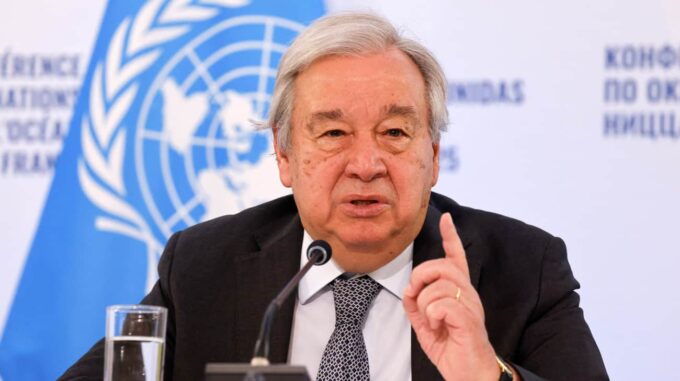The UN Secretary-General condemned the military escalation by the United States and called for an immediate de-escalation of tensions in the region

Members of the international community are observing with concern the rising tensions in the Middle East following recent US missile strikes on Iran, which have caused significant alarm for Secretary-General António Guterres of the United Nations. In his official post on the X platform (formerly known as Twitter), he emphasized that such actions are “a dangerous and destabilizing factor,” and their consequences could be catastrophic not only for the region but also for global security. Guterres stressed that in a context where the region is already on the brink of a new military confrontation, any intensification of hostilities could lead to an uncontrollable development of events. According to him, the likelihood is increasing that the conflict will quickly escalate into a large-scale crisis, resulting in destruction for civilians, degradation of stability in the region, and adverse consequences for the entire world. He called on all parties to refrain from any actions that could escalate tensions and to adhere to international obligations in accordance with the UN Charter and universally recognized norms of international law. Guterres highlighted that any military solution at this stage is absent and cannot be the way to stabilize the situation: “The only thing that can save the region and stop the bloodshed is diplomatic efforts and dialogue. War is never the answer that leads to stability and peace.” The background to these events has a long and complex chronology. On the night of June 13, Israeli military forces launched a so-called preventive strike in response to growing tensions and an attempt to undermine Iran’s nuclear program. According to official information, the strikes targeted primarily military facilities supporting Iran’s nuclear activities. On June 14, a few hours after this operation, and during the night of June 22-23, the US Air Force carried out three large-scale airstrikes on strategically important nuclear sites in Iran — in Fordo, Natanz, and Isfahan. Preliminary reports suggest that these strikes aimed at diversifying and dismantling Iran’s nuclear potential, further increasing regional tension. The US response to this escalation was swift and unanimous. President Donald Trump, commenting on the missile attacks, called on Iran’s leadership to immediately cease hostile actions and to pursue peace. He clearly hinted that more extensive and persistent strikes could follow if Tehran did not take steps toward de-escalating the conflict. “If Iran refuses peace, further strikes will be even larger and more destructive,” Trump stated, emphasizing that the interests of US security require firm actions and a strategy of strong deterrence. The international reaction to these events remains cautious. All interested parties are calling for the resumption of diplomatic efforts to prevent escalation and the transition of the conflict into open warfare. The UN and international organizations advocate for adherence to international law, the avoidance of provocations, and the pursuit of a peaceful resolution that considers regional security and stability. Against this backdrop, a pressing question remains: can diplomacy restore the situation to peaceful track, or will regional tensions escalate into a full-scale military conflict with global repercussions? As experts note, the shared responsibility for preserving peace lies with the international community, particularly the global society, which must do everything possible to prevent a new war that could lead to catastrophic consequences for all of humanity.

